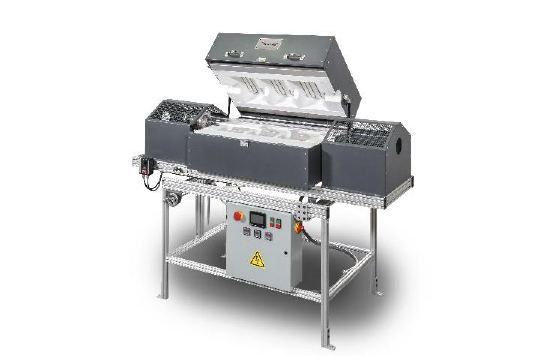Harper International expands product offering with lab-scale rotary furnace
The furnace delivers temperature uniformity for batch or continuous processing of advanced materials at at operating temperatures up to 1,200°C.

Photo Credit: Harper International
Harper International (Buffalo, N.Y., U.S.) a company offering thermal processing solutions for advanced materials, announces the launch of its lab-scale rotary furnace. The lab-scale rotary furnace enables those who develop and manufacture advanced materials to optimize their process parameters on a small scale to ensure capability and quality requirements are achieved prior to investment in production-scale thermal process equipment.
Full featured with short delivery times, the lab-scale rotary furnace reportedly provides clients with the opportunity to get to market faster and more efficiently. The furnace delivers temperature uniformity for batch or continuous processing of advanced materials including granular, powder or particulate aggregates at operating temperatures up to 1,200°C (2,192ºF). Harper also offers add-on options for controlled atmospheres and material handling.
In addition, Harper applies this furnace to the Ignite program at its Technology Research Center. Ignite allows clients to run feasibility demonstrations and experimental campaigns while leveraging Harper’s expertise in process development and process optimization.
Related Content
-
A new era for ceramic matrix composites
CMC is expanding, with new fiber production in Europe, faster processes and higher temperature materials enabling applications for industry, hypersonics and New Space.
-
Carbon fiber, bionic design achieve peak performance in race-ready production vehicle
Porsche worked with Action Composites to design and manufacture an innovative carbon fiber safety cage option to lightweight one of its series race vehicles, built in a one-shot compression molding process.
-
Sulapac introduces Sulapac Flow 1.7 to replace PLA, ABS and PP in FDM, FGF
Available as filament and granules for extrusion, new wood composite matches properties yet is compostable, eliminates microplastics and reduces carbon footprint.













